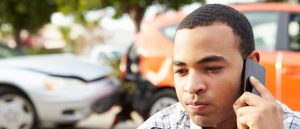Accidents can happen at any time, and being prepared can make a significant difference in handling the situation effectively. Understanding the roles of accident doctors, personal injury attorneys, and the necessary steps to take after a car accident ensures that you protect your health, rights, and potential compensation. Here’s everything you need to know.
What to Do Immediately After a Car Accident
Ensure Safety First
- Check yourself and your passengers for injuries.
- If possible, move your vehicle to a safe location to avoid further accidents.
- Call 911 to report the accident and request medical assistance if needed.
- If the accident involves injuries or property damage, wait for law enforcement to arrive.
2. Help When Necessary
- If others are injured, offer aid but do not move them unless they are in immediate danger.
- Comfort children who may be involved, as they can be especially traumatized.
3. Gather Crucial Information
Exchange names, contact details, driver’s license numbers, and insurance information with the other driver.
- Take photos of vehicle damage, license plates, traffic signs, and road conditions.
- Collect witness statements and contact details if available.
- Do not admit fault or discuss the accident’s details with anyone except the police.
4. Contact Your Insurance Company
- Report the accident as soon as possible.
- Provide accurate details but avoid making recorded statements without legal counsel.
The Role of Accident Doctors
Many people assume they can visit their primary care physician after an accident. However, accident doctors specialize in treating injuries sustained in crashes and provide the documentation necessary for insurance claims and legal cases.
Why See an Accident Doctor?
Detecting Delayed Injuries
Symptoms of whiplash, concussions, or soft tissue damage may not appear immediately but can cause long-term complications if untreated.
Medical Documentation for Claims
Insurance companies require proper medical records to validate injury claims.
Specialized Treatment Plans
Accident doctors understand trauma-related injuries and can develop a tailored recovery plan.
Legal Evidence
A well-documented medical evaluation can serve as critical evidence in a personal injury case.
When to See an Accident Doctor?
Even if you feel fine, get a medical evaluation within 72 hours of the accident to document any hidden injuries.
Visit an accident doctor if you experience symptoms such as headaches, dizziness, neck or back pain, numbness, or swelling in the days following the crash.
Why You may Need a Personal Injury Attorney
If you’ve been injured in a car accident, hiring a personal injury attorney can help you navigate the legal complexities and ensure you receive the compensation you deserve.
How a Personal Injury Attorney Can Help
Case Evaluation
Determines whether you have a valid claim and advises on legal options.
Negotiation with Insurance Companies
Works to secure a fair settlement and prevents you from being pressured into accepting a low offer.
Gathering and Organizing Evidence
Collects medical records, police reports, and witness statements to build a strong case.
Court Representation
If a fair settlement is not reached, an attorney will represent you in court to fight for the compensation you deserve.
When Should You Hire an Attorney?
- If you sustained injuries requiring medical treatment.
- If the insurance company offers a low settlement or denies your claim.
- If the other driver was uninsured or underinsured.
- If there were fatalities or severe injuries in the accident.
Most personal injury attorneys offer free consultations, so speaking with one as soon as possible can be beneficial.
Did You Know?
According to the National Safety Council, 4.8 million people were seriously injured in car accidents in 2022.
The average economic cost of a car accident can range from $10,000 to over $1 million, depending on the severity.
More than 50% of injury claims are denied or undervalued by insurance companies, highlighting the importance of legal representation.
Key Takeaways
Immediately after an accident, prioritize safety, call emergency services, and gather essential information.
- Prioritize safety and seek medical attention immediately, even if you don’t feel injured.
- Gather as much evidence as possible, including photos, witness statements, and medical records.
- Visit an accident doctor to properly document your injuries and receive specialized care.
- Document everything
- Consult a personal injury attorney to protect your rights and maximize your compensation.
- Be cautious when speaking to insurance companies and avoid recorded statements without legal counsel.
Car accidents can be life-changing, but knowing how to handle them can make a world of difference. Whether it’s seeking medical care, gathering evidence, or pursuing legal action, being proactive ensures you receive the support, treatment, and financial recovery you need.
If you’ve been in an accident, don’t wait—get the medical attention and legal guidance necessary to safeguard your future!


